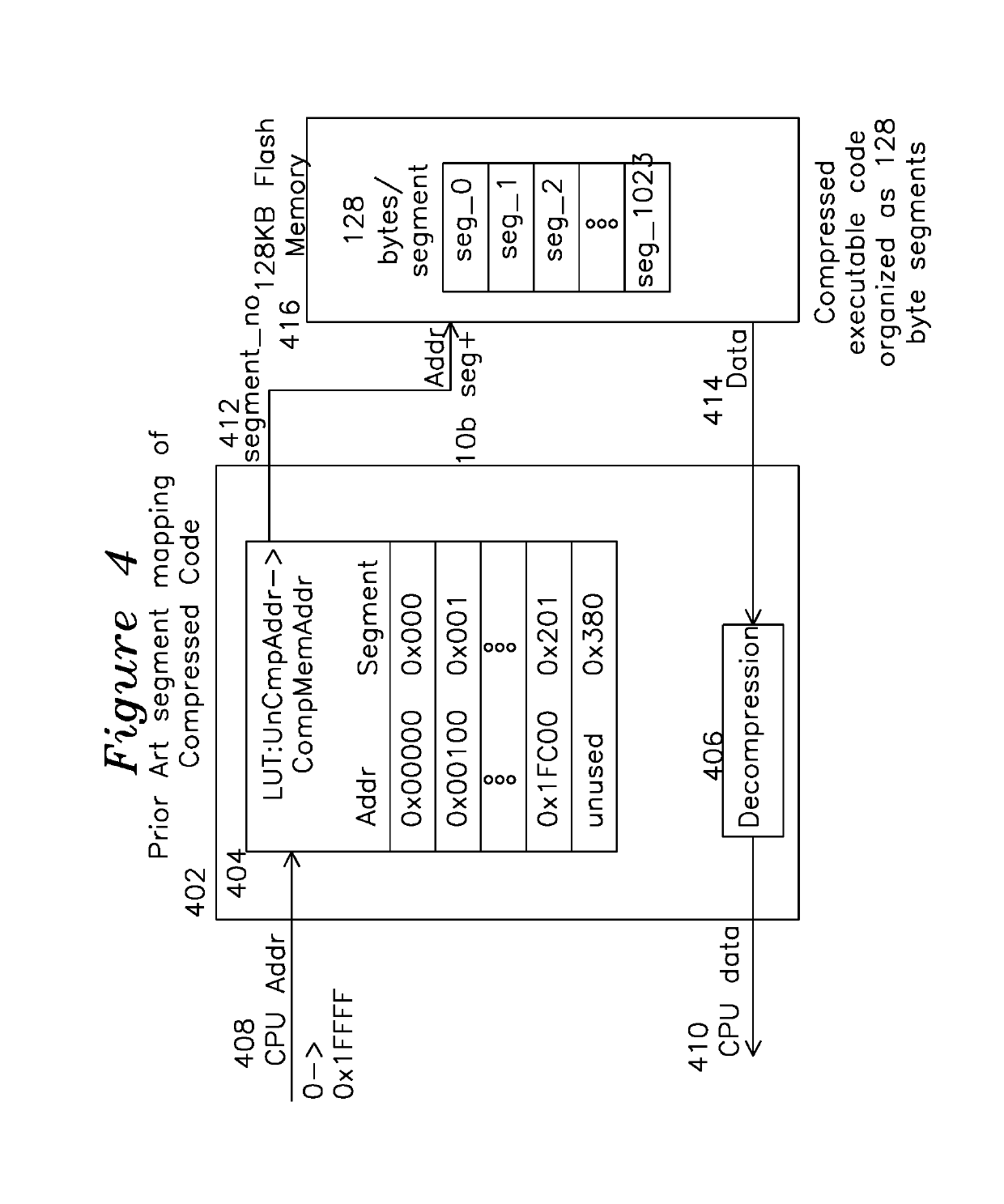Decompression engine for executable microcontroller code
- Summary
- Abstract
- Description
- Claims
- Application Information
AI Technical Summary
Benefits of technology
Problems solved by technology
Method used
Image
Examples
Embodiment Construction
[0032]The system shown in FIG. 3 provides a decompression engine 302 coupled to CPU 312, which requests an address 304, the decompression engine 302 converts this to an address 306, receives associated data 308, decompresses it, and passes it to the CPU as CPU data 310. The memory 314 may be flash memory in one example of the invention. Note that in the present patent application, references numbers to a particular structure are used to invoke the function of the same structure in other figures.
[0033]FIG. 5 shows a compressed code controller 502 coupled to memory 528, which in practice is a single memory device, but is shown as two blocks comprising compressed instructions 531 (having irregular boundaries between compressed instructions) and 32 bit dictionary entries 532 with fixed width entries for clarity. Other variations of memory width may be practiced, the present 32 bit examples are provided only for understanding the invention. A CPU address 516 is applied to compressed inst...
PUM
 Login to View More
Login to View More Abstract
Description
Claims
Application Information
 Login to View More
Login to View More - R&D
- Intellectual Property
- Life Sciences
- Materials
- Tech Scout
- Unparalleled Data Quality
- Higher Quality Content
- 60% Fewer Hallucinations
Browse by: Latest US Patents, China's latest patents, Technical Efficacy Thesaurus, Application Domain, Technology Topic, Popular Technical Reports.
© 2025 PatSnap. All rights reserved.Legal|Privacy policy|Modern Slavery Act Transparency Statement|Sitemap|About US| Contact US: help@patsnap.com



